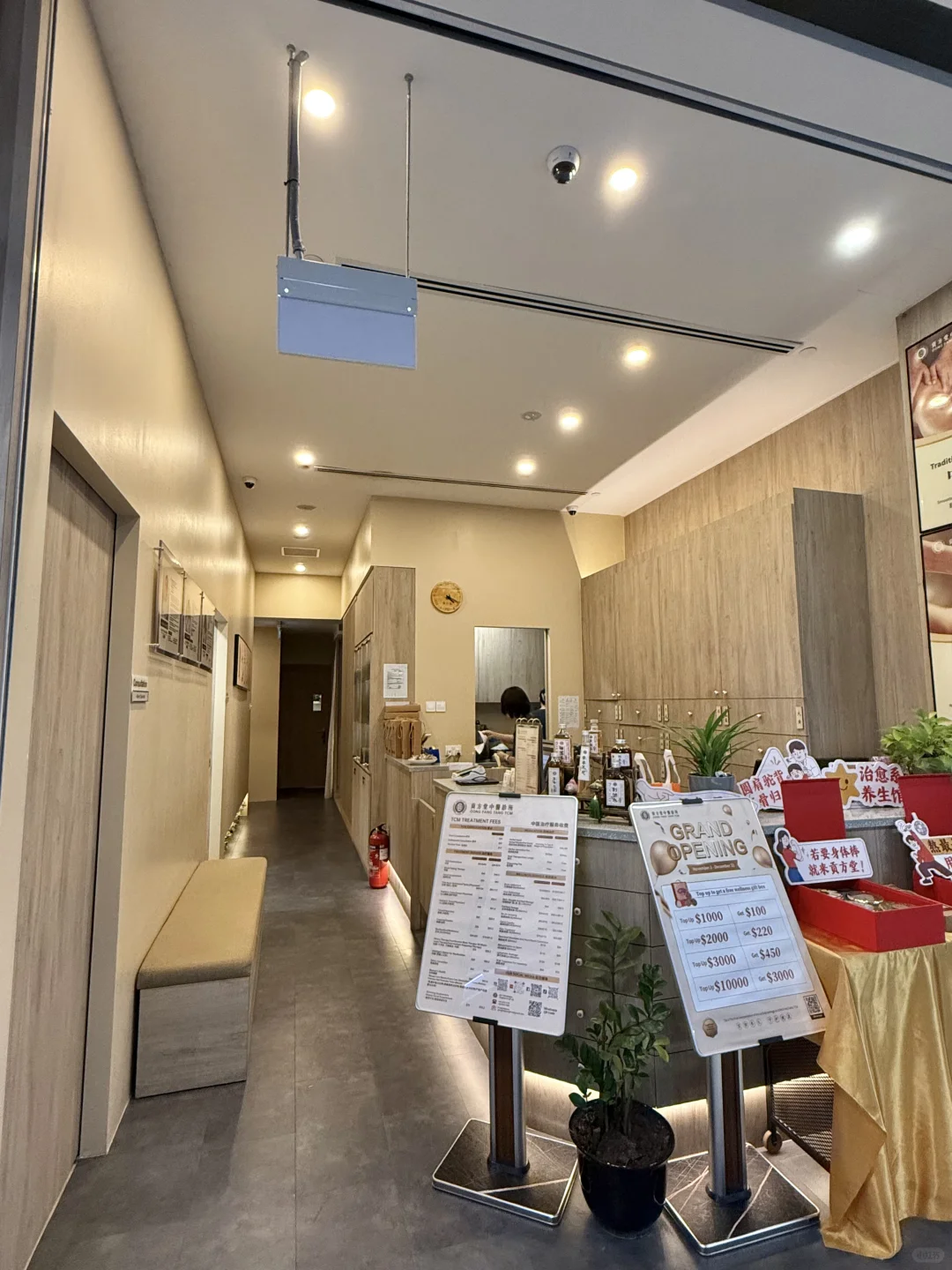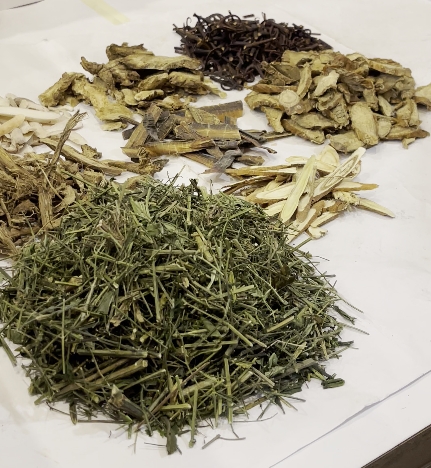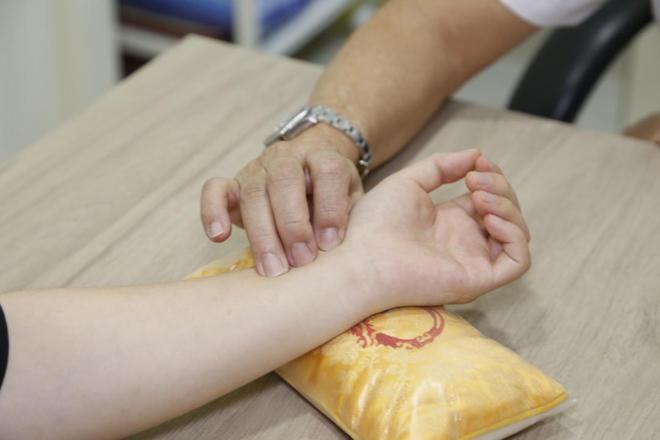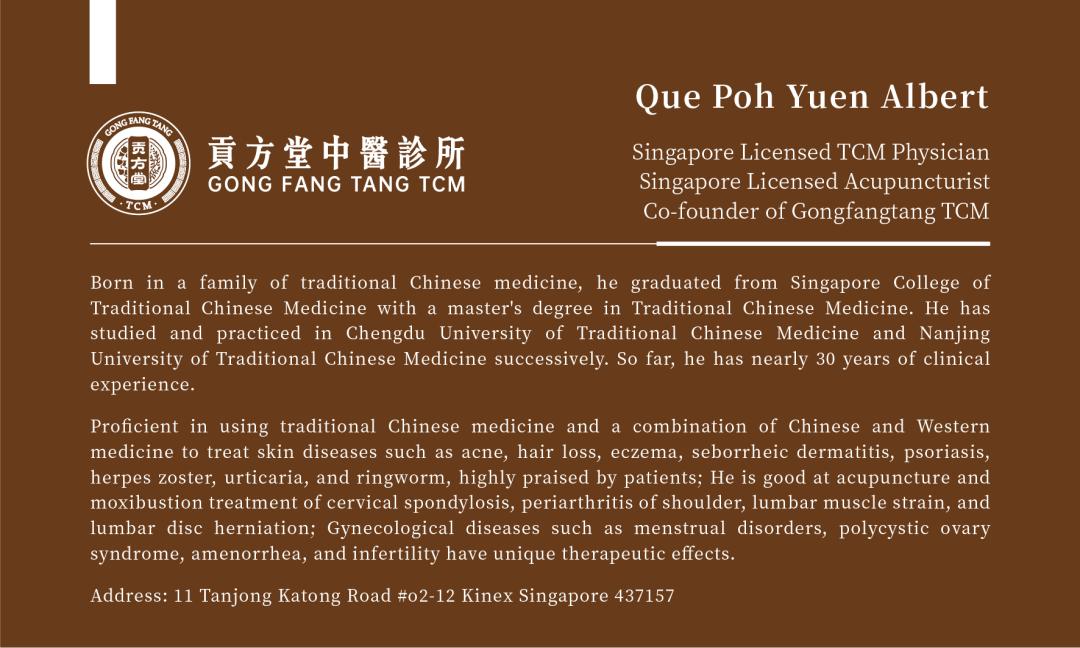- Physicians
- Clinics
- TCM
- Western GP
-
Fees
-
Deals & Privileges
- About & Resources
- Contact Us
Dizziness, Tinnitus, Insomnia, Irritability, and Feeling Like Blood Vessels Are About to Burst... What Are TCM’s Effective Methods for Stubborn Hypertension?

Singapore Gong Fang Tang TCM expert Dr. Que Poh Yuen Albert explains that in Traditional Chinese Medicine (TCM), the liver is said to "ascend on the left," while the lungs "descend on the right." These two organs maintain the body’s cyclical flow of Qi. Some physicians attribute elevated systolic blood pressure to excessive upward rebellion of "Liver-Wood and Fire Qi," while high diastolic pressure results from weakened "Metal-Lung and Water-Kidney Qi" convergence. Treatment approaches vary accordingly.
Hypertension in TCM encompasses multiple syndromes, but here we focus on the most common type: Liver Yang Hyperactivity.
Key symptoms include headaches, dizziness, dry and bitter mouth, red face and eyes, irritability, and anger. Liver Yang is likened to a rocket. Anger or unhealthy habits like high-salt diets act as "fuel," propelling the Yang upward to the head—the body’s highest point.
To manage this, maintaining emotional calm and a healthy diet reduces the "fuel," while TCM methods "block the rocket" to pacify Liver Yang. Normally, Liver Yang is anchored by Yin fluids from the liver and kidneys, as stated in Huangdi Neijing: "Yang is exhaled, Yin is inhaled." Yin acts like a magnet holding Yang in balance.
With age, Liver-Kidney Yin diminishes, weakening this "magnetic" force and allowing Yang to rise. TCM employs sour-sweet herbs (sour to[constrain], sweet to tonify) to generate Yin. Anger exacerbates this imbalance, driving Liver Yang upward and raising blood pressure.

Many patients with stubborn hypertension face worsening blood pressure despite increasing medications. Dr. Qiu notes these cases often involve "Liver Yang Hyperactivity with Phlegm-Stasis Blockage." Classical formulas like San Cao Jiang Ya Tang can break this cycle.
This formula, though simple, is potent:
Motherwort (Yi Mu Cao) 30g
Prunella Spike (Xia Ku Cao) 15g
Gentian (Long Dan Cao) 10g
White Peony (Bai Shao) 20g
Honey-fried Licorice (Zhi Gan Cao) 10g
Functions: Clears Liver Fire, nourishes Yin, softens the Liver, activates blood, and promotes diuresis.
Indications: Hypertension, headaches, vertigo.
Usage: Decoction, 1 dose daily, taken 2–3 times.
Mechanism:
Motherwort (Yi Mu Cao): A "holy herb" for gynecology, it clears heat, activates blood, and reduces blood pressure via diuresis.
Prunella (Xia Ku Cao): Clears Liver Fire, disperses stagnation, and lowers blood pressure.
Gentian (Long Dan Cao): Bitter and cold, drains Liver Fire and damp-heat (e.g., Long Dan Xie Gan Tang).
White Peony & Licorice: Sour-sweet pairing generates Yin, nourishes Liver Blood, and restrains Yang.
Formula Balance:
Activates blood (Motherwort) while nourishing it (Peony).
Clears Fire (Prunella, Gentian) while protecting the spleen (Licorice).
Promotes diuresis (Motherwort, Gentian) without depleting Yin (Peony).
Caution: Gentian’s cold nature may harm weak spleens/stomachs.
Modifications:
Add Achyranthes (Niu Xi) to guide Fire downward.
Abalone Shell (Shi Jue Ming) or Pearl Oyster (Zhen Zhu Mu) to subdue Yang.
Scutellaria (Huang Qin) or Gardenia (Zhi Zi) for intense Fire.
Rhubarb (Da Huang) to purge heat.
Moutan (Mu Dan Pi) to cool blood.
Uncaria (Gou Teng) or Chrysanthemum (Ju Hua) to extinguish Wind.
Poria (Fu Ling) or Alisma (Ze Xie) for edema.

Patient: Mr. Zhang, 60, with 12-year hypertension history.
Medications: Nifedipine, Irbesartan (3 drugs), yet BP fluctuated at 150–165/95–105 mmHg.
Symptoms: Dizziness, bitter/dry mouth, red tongue with yellow greasy coating, wiry-rapid pulse.
TCM Diagnosis: Liver Yang Hyperactivity with damp-heat stasis.
Treatment: Modified San Cao Jiang Ya Tang (Gentian 6g, Licorice 6g).
Outcome:
Day 3: Reduced morning dizziness.
Day 5: BP dropped to 135/85 mmHg; headaches and bitterness resolved.
After 2 weeks: BP stabilized at 120–130/80–85 mmHg; antihypertensives reduced from 3 to 1.
